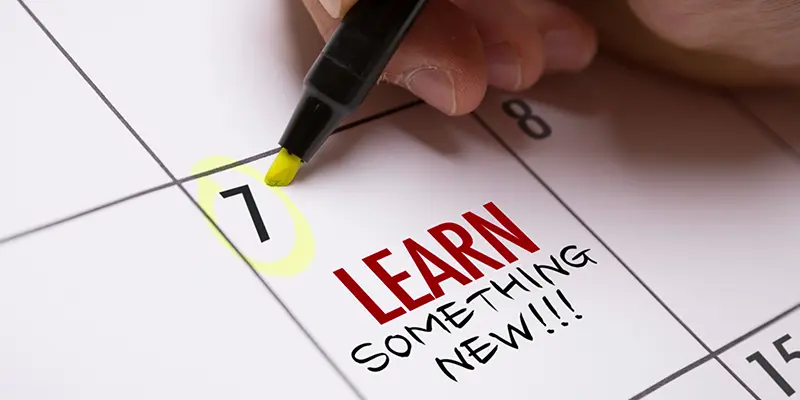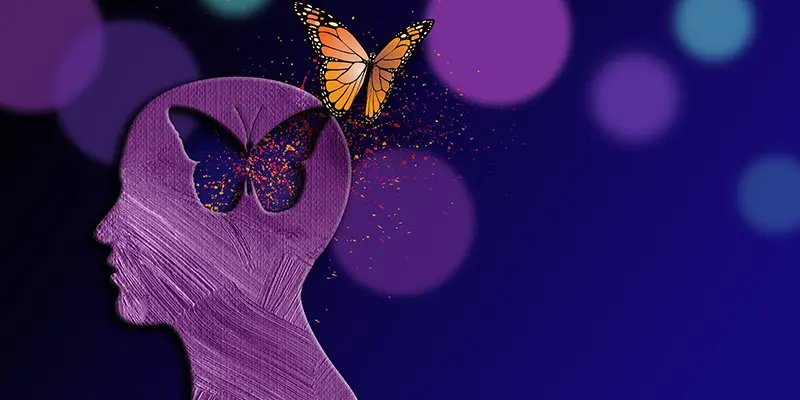
When was the last time you asked your doctor to do an assessment of your memory? If you’re like many people, the answer probably is “never.” But just like getting the health of your heart blood pressure, and cholesterol checked, having your brain and memory evaluated is every bit as important—if not more so—especially as the years pass.
There’s no question that being afraid of getting dementia is a legitimate concern, especially for anyone over the age of 50. Increased forgetfulness, problems with concentration, and changes in mental stamina are not unusual. However, just because you’re having issues like these doesn’t mean there aren’t things you can do to improve how your brain works.
Just because you’re having memory issues, concentration problems, and less mental stamina doesn’t mean there aren’t things you can do to improve how your brain works.What’s Holding You Back?
According to the Alzheimer’s Association’s 2022 report, there are approximately 6.5 million adults in the U.S. with Alzheimer’s disease (AD)—the most common type of dementia. This represents 10.7% of people over the age of 65. Although this may sound daunting, it also infers that about 89% of seniors don’t have AD.
Is it possible that older people don’t raise the topic of memory with their doctor because they’re afraid of what they might find out—or because they don’t think anything can be done about it anyway?
Numerous factors influence brain function, and regardless of age, there are many ways you can have a better brain, even later in life. To provide guidance on this, the doctors at Amen Clinics developed a checklist of 11 risk factors for memory loss, represented by the mnemonic (memory device) BRIGHT MINDS. It helps people identify their vulnerabilities and learn what strategies can help minimize the effects of any risks.
BRIGHT MINDS FOR A BETTER BRAIN AT ANY AGE
When you know your risks and follow through on recommendations to minimize their impact, your brain can become healthier and more vibrant again. Here’s a basic overview of BRIGHT MINDS along with some tips you can start using right away.
B is for Blood Flow.
This most basic of bodily functions reflects the status of the blood vessels throughout your body and brain. Getting treated for issues such as pre-hypertension or hypertension and exercising regularly can improve blood flow and your health. A 2021 study published in Ageing and Research Reviews found that a simultaneous program of the brain and physical exercise training improved cognitive function—even in participants who had mild cognitive impairment, which is often a precursor for dementia.
R is for Retirement and Aging.
While many people covet the moment they can officially retire, opting to become a couch potato is like asking for problems. Instead of lounging around, use some of that free time to challenge your brain by learning new things and volunteering so you stay socially connected to others.
I is for inflammation.
The basis for almost every disease—including dementia—is inflammation. It can lurk throughout your brain and body, including your gums in the form of periodontal disease. To get it under control:
- Start flossing every day.
- Get your blood tested to see if your C-reactive protein and homocysteine levels are high or omega-3 levels are too low and follow treatment recommendations for bringing them into appropriate ranges.
- Eliminate sugar because it increases inflammation.
- Take an anti-inflammatory supplement, such as curcumin.
G is for Genetics.
If you have one family member with Alzheimer’s disease or another form of dementia, your risk is 3.5%, but if more than one person in your family has dementia, your risk jumps to 7.5%. Fortunately, your genes aren’t necessarily your destiny, and you can fight against these odds by making healthy lifestyle choices now that support optimal brain function.
H is for Head Trauma.
When brain cells get injured from a concussion or other type of traumatic brain injury, they draw in less blood and other nutrients like oxygen, lowering function in those areas. Being proactive to heal from a head injury and avoiding anything that hurts your brain—like more injuries—can make a positive difference. Wear a helmet when biking, skiing, or snowboarding, and NEVER text while walking or driving.
T is for Toxins.
We live in a world where toxins seem to be almost everywhere in the environment, but they can also be in what you put in your body. So, if you smoke cigarettes get help to quit. If you have a problem with alcohol or recreational drugs, seek out support to become sober. If you’ve been exposed to heavy metals, talk to your doctor about chelation treatment.
M is for Mental Health.
Untreated mental health conditions can increase your chances of having memory issues, especially as you get older. If you are struggling with PTSD, depression, bipolar disorder, schizophrenia, or are living with chronic stress, take the step to schedule an appointment with a psychiatrist and/or a psychotherapist who can help you reduce your symptoms and get your brain in better balance.
I is for Immunity/Infections.
Many medical issues, including some autoimmune disorders, herpes, and adult asthma can affect your memory, as can problems from untreated Lyme disease and prolonged symptoms of COVID-19. Therefore, getting treatment for any infection and taking vitamin D as well as adding smart mushrooms like reishi, lion’s mane, and shiitake to your diet can help support your immune system and brain health.
N is for Neurohormone Issues.
If you’re a woman with low thyroid or a man (or woman) whose testosterone levels are low, it can lead to forgetfulness, poor concentration, and mood issues. Fortunately, some simple blood tests to check these can let you know if hormonal imbalances are a cause of your brain issues. Treatment with medication, or supplements in some cases, can make a big difference in getting your brain back on track.
D is for Diabesity.
Being overweight or obese or having diabetes/prediabetes can directly affect your brain function. In fact, research has found that when the size of your body goes up, the size of your brain goes down. Therefore, getting treatment for diabetes, managing your blood sugar, and losing weight can help make your memory sharper.
S is for Sleep.
Without getting at least 7 hours of sleep each night, you increase your risk for long-term brain problems. If you have sleep apnea, it’s critical to get treated for it. Or if you struggle with insomnia, work with a counselor to see what stressors might be keeping you up at night, so you can get the necessary shut-eye needed to wake up feeling mentally and physically refreshed.
Regardless of your age, there’s no need to fear getting a brain check-up—it’s one of the smartest things you can do, especially after age 50. By learning your risk factors for memory problems, there are actionable steps you can take to improve brain function, so you can think more clearly, have better energy, and be able to truly enjoy the later years of your life.
You can learn more about BRIGHT MINDS and build a better brain with Amen Clinics Memory Rescue Program.
Memory problems can’t wait. At Amen Clinics, we’re here for you. We offer in-clinic brain scanning and appointments, as well as mental telehealth, clinical evaluations, and therapy for adults, teens, children, and couples. Find out more by speaking to a specialist today at 888-288-9834 or visit our contact page here.





Excellent information!!
Comment by Nancy Carol Andrews — August 17, 2022 @ 7:49 PM
wonderful information!
Comment by Doug Morris — February 21, 2023 @ 9:51 AM